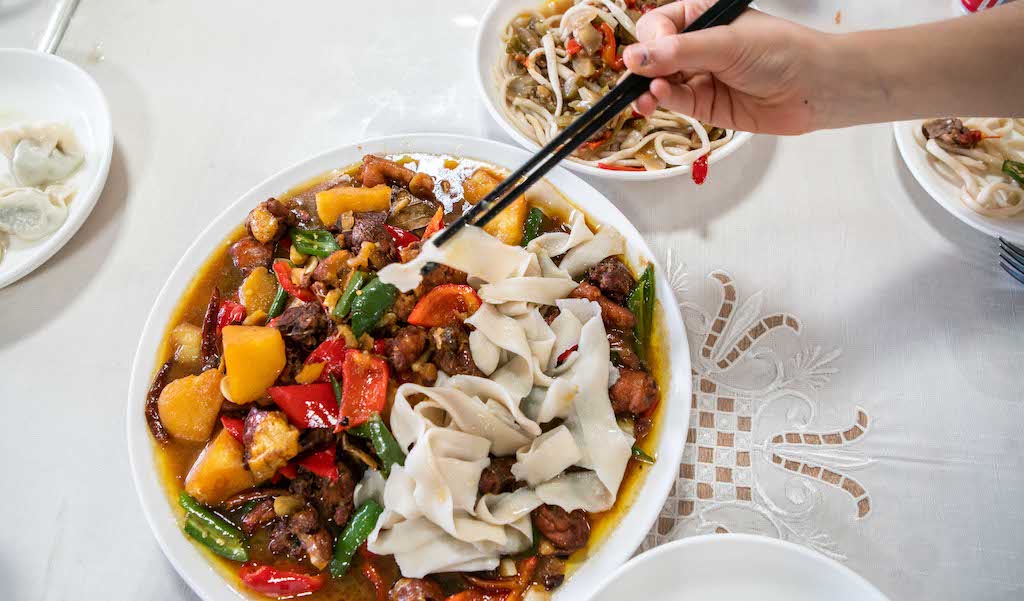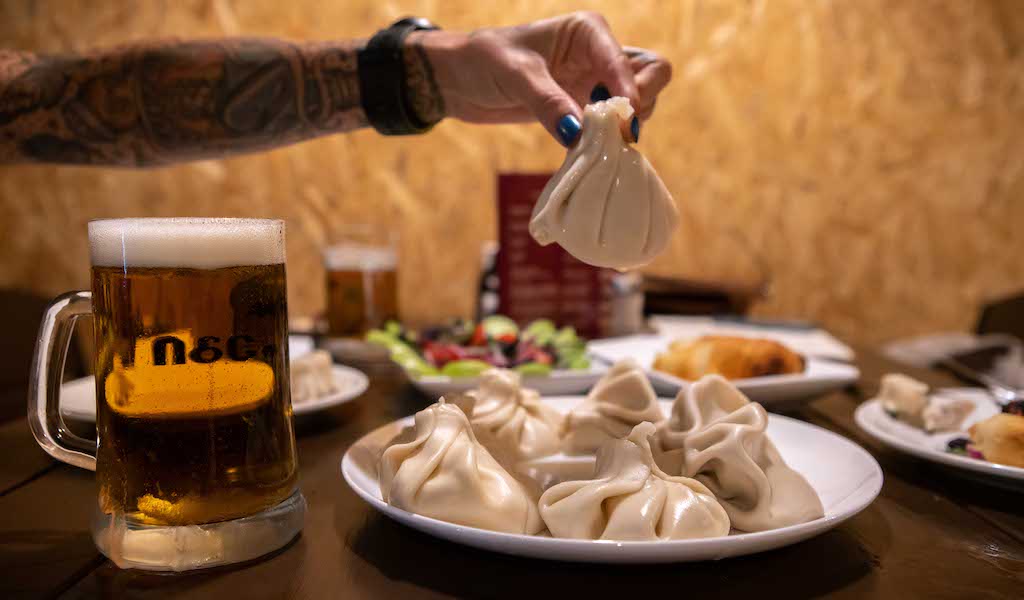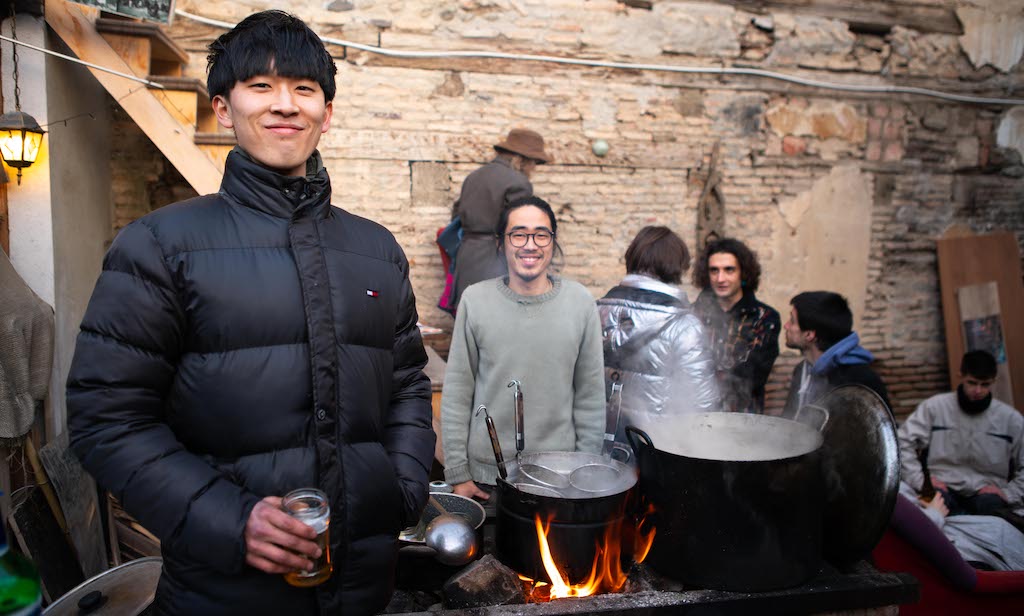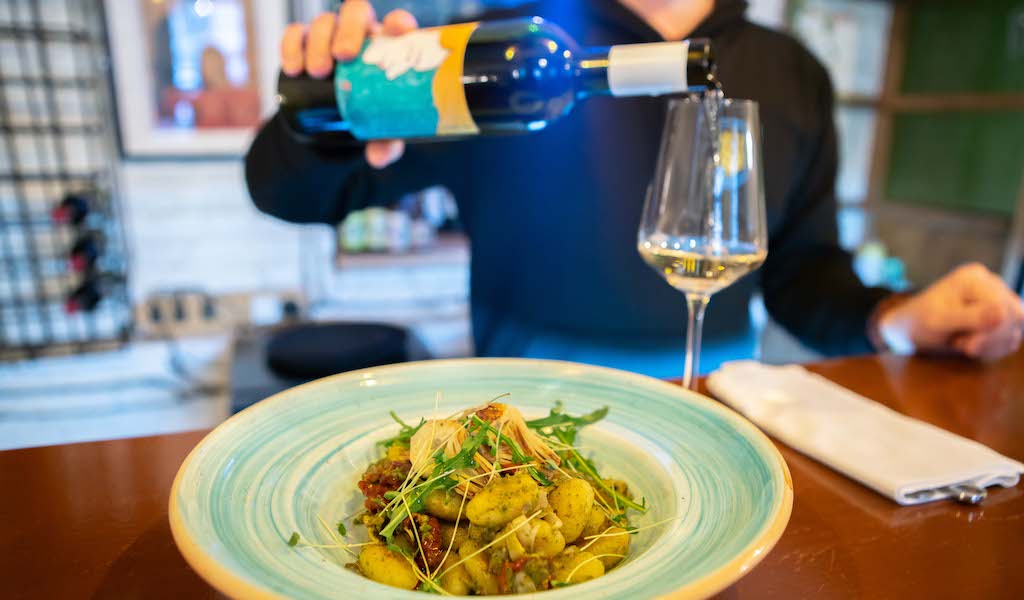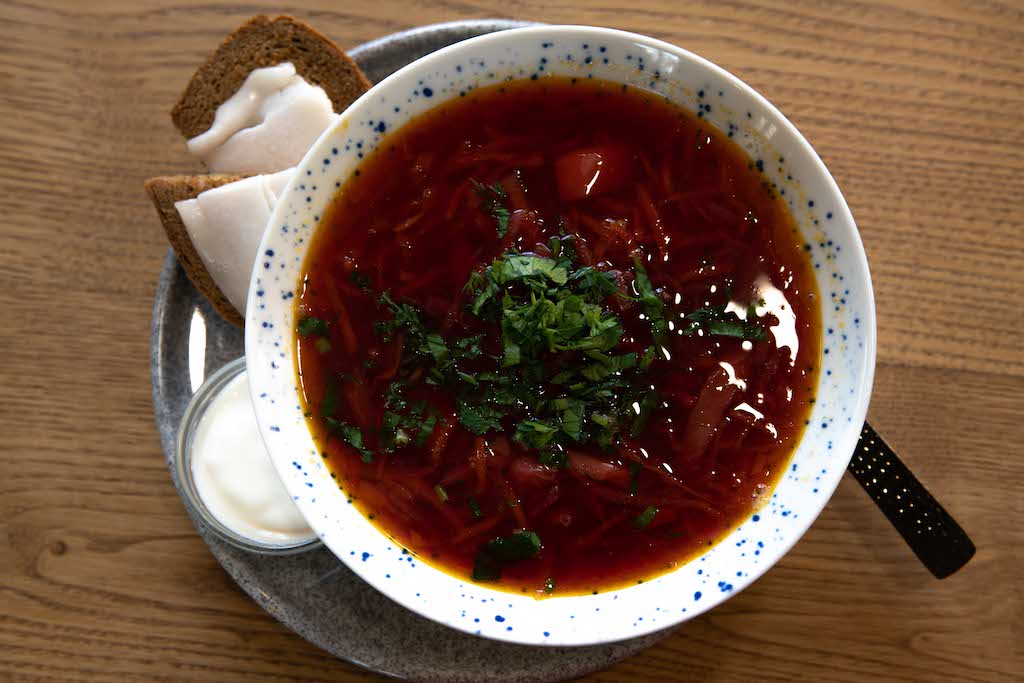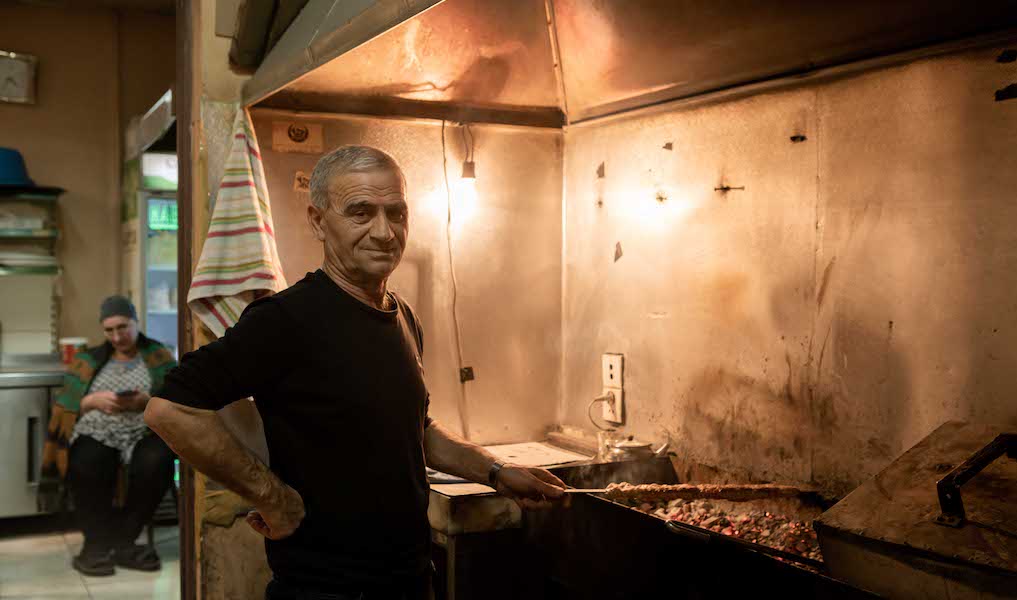We can't find the internet
Attempting to reconnect
Something went wrong!
Hang in there while we get back on track
Search results for "Pearly Jacob"
Tbilisi
Xinjiang Sasadilo: Uighur Culinary Oasis
When it first opened in 2017, Hualing Tbilisi Sea Plaza was supposed to be the largest shopping mall in the South Caucasus. But all signs suggest that the gigantic commercial center has yet to live up to its great expectations, with one journalist noting that at times “shoppers were outnumbered by shops.” The mall was one of the flashy elements of a $170 million investment by the Chinese Hualing Group that went into transforming 420 hectares of a desolate eastern Tbilisi suburb called Varketili into Hualing Tbilisi Sea New City, with developments that included a colossal glass-shrouded 5-star hotel, rows of 10-story residential complexes and expansive avenues that abruptly adjoin wiggly side streets at the borders of the project site.
Read moreTbilisi
Kutkhe: Khinkali Corner Shop
No neighborhood is complete without that friendly corner shop that often provides the perfect excuse to pop out of the house for a bit. And when that corner shop serves up the most delectable juicy khinkali and fresh drafts served up in freezer-chilled pint mugs, there’s a dangerous temptation to linger and indulge. Kutkhe literally means “the corner” in Georgian, a no-frills basement restaurant at the corner of two frequented streets in Tbilisi’s left bank district of Marjanishvili. Located just two streets down from Fabrika – the multifunctional art and social space that helped gentrify the former overlooked and disheveled neighborhood – we couldn’t help but pop in while out on some errands on a sweltering day, easily lured by the simple chalkboard outside that promised khinkali, beers, kebabs and fries served up in air-conditioned comfort.
Read moreTbilisi
UZU House: Ramen Commune
Follow a narrow alley radiating off the newly renovated Lado Gudiashvili square whose surrounding rebuilt period houses now exudes the tourist-attracting pastiche pleasantness of reconstructed historic centers, and you’ll stumble upon Uzu House, the sole standing habited ruin left on Saiatnova street. Uzu means “vortex” in Japanese, explains Yamato Kuwahara, the reticent founder of the space, which is registered as a non-profit and functions like an informal art residence – “This space is a vortex that brings different people together…it's a space for everyone, no concept or philosophy attached, ” he adds.
Read moreTbilisi
Living Vino: Vegan Wine and Dine
Once upon a time, Tbilisi wasn’t too kind to vegans – the reputation was sealed when a malicious attack in 2016 by “sausage-wielding” far-right extremists on the city’s then only vegan café made international headlines. Nonetheless, a handful of chefs and restaurant owners are determined to make a change. Tbilisi’s selection of vegan restaurants has increased since the attack, and these days, even those seeking a more gourmand fine-vegan-dining experience finally have an address to call on at Living Vino Vegan Restaurant and Natural Wine Bar. Living Vino’s Ukrainian founder Dimitri Safonov has long been acquainted with Georgia’s wine history – his first glass of homegrown Rkatsiteli was offered to him at the age of 12 by his grandfather, an amateur winemaker from now Russian-occupied Crimea.
Read moreTbilisi
Lui Coffee: Solidarity Borscht
It started with a resurfaced meme. A 1953 black-and-white photo of a Ukrainian-emigrant-owned restaurant in Washington, D.C., offering free borscht to celebrate Stalin’s death. Seeing it reposted now has reminded me of the culture war that simmered last year over the hearty, beetroot-heavy soup when celebrity Ukrainian chef Ievgen Klopotenko started a campaign to have UNESCO recognize it as a part of Ukraine’s cultural heritage – partly in response to a 2019 tweet published by a Russian government account that claimed “#Borsch is one of Russia's most famous & beloved #dishes & a symbol of traditional cuisine.”
Read moreTbilisi
Duqani Kasumlo: Blue-Collar Kebabs
Mtkvari, the local name for the Kura River, divides Tbilisi. Until the launch of Fabrika – a disused Soviet-era garment factory turned into a trendy social-space-cum-hostel in 2016 – few gentrified souls from the city’s fancier shore crossed over to the left bank. Fewer still stepped out further than the central Marjanishvili neighborhood, making it past Dezerter Bazaar – the throbbing gastronomic heart from where most of the city’s fresh produce and meats originate. This is also where Leonid Chkhikvishvili buys fresh cuts of meat each morning for his restaurant Duqani Kasumlo, located even further north on the left bank in Didube. Here is a neighborhood where few travelers tread, except perhaps to quickly pass through to catch cheap intercity mashrutkas (mini-buses). But despite its overlooked location, Duqani Kasumlo has acquired semi-cult status for its kebabs in an area better known for its cluster of home improvement stores and the labyrinthine Eliava market, home to hawkers of used car parts and construction materials.
Read more